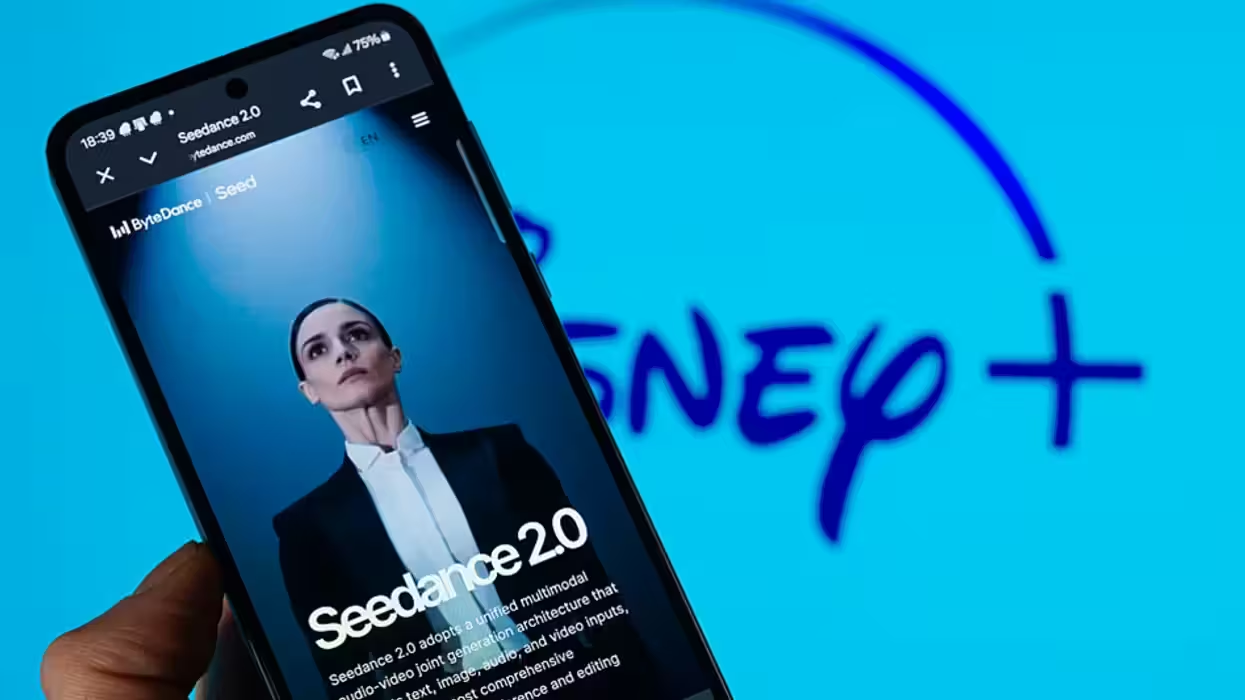
© 2026 Blaze Media LLC. All rights reserved.
Police Emails Indicate Plan to Hide the Use of Cellphone-Spying Devices From Courts
June 20, 2014
"Local and federal law enforcement should certainly not be colluding to hide basic and accurate information about their practices from the public and the courts ... "
Emails revealed by the American Civil Liberties Union indicate that Florida police made an agreement with the U.S. Marshals Service to hide information about specific cellphone-tracking techniques and devices they used.
 The StingRay tracking device is just one of several ways police can track your cellphone — without a warrant in some states — by using phony tower signals. (Image source: Harris Corp)
The StingRay tracking device is just one of several ways police can track your cellphone — without a warrant in some states — by using phony tower signals. (Image source: Harris Corp)
In the initial email exchange, a Sarasota Police Department sergeant wrote that in a warrant application to a judge, a North Port Police Department detective had “specifically outlined the investigative means used to locate the suspect,” and the sergeant asked that the detective “submit a new [probable cause affidavit] and seal the old one.”
In other words, fix the old affidavit and keep the use of StingRay equipment secret, according to the ACLU.
Although the Sarasota Police Department and the North Point Police Department did not own StingRay devices, the two departments had borrowed the cellphone trackers from the U.S. Marshals Service, which requested that they hide the use of the StingRays from judges and defendants, according to ArsTechnia.
The issue came up in the emails when Sarasota police realized that a North Point detective had shared too many details in a probable cause affidavit, specifically detailing “the investigative means used to locate the suspect.”
The Sarasota Police asked that the North Point Police seal the old affidavit and submit a new, more vague one.
The email continued:
“In the past, and at the request of the U.S. Marshalls [sic], the investigative means utilized to locate the suspect have not been revealed so that we may continue to utilize this technology without the knowledge of the criminal element. In reports or depositions we simply refer to the assistance as ‘received information from a confidential source regarding the location of the suspect.’ To date this has not been challenged... ”
The Associated Press recently reported that the Obama administration has been "quietly advising local police not to disclose details about surveillance technology they are using to sweep up basic cellphone data from entire neighborhoods."
"Citing security reasons, the U.S. has intervened in routine state public records cases and criminal trials regarding use of the technology," the report added. "This has resulted in police departments withholding materials or heavily censoring documents in rare instances when they disclose any about the purchase and use of such powerful surveillance equipment."
The American Civil Liberties Union filed a Florida public records petition to secure communications involving StingRay tracking devices; the ACLU published the email exchanges Thursday.
In a follow-up email, a North Port Police Department official wrote: “We have implemented within our detective bureau to not use this investigative tool on our documents in the future.”
The ACLU has consistently advocated for the reduction in use of tracking devices, but the revelation of purposefully misleading statements on official court documents took the discussion to another level.
"These emails reveal intentional deception by law enforcement," ACLU attorney Nathan Freed Wessler told TheBlaze. "The government cannot intentionally mislead judges and criminal defendants in this way. It's a violation of people's constitutional rights to a fair trail and - really - it ends up being a fraud on the public."
The ACLU said in a blog post that concealing the use of StingRays deprives defendants of their right to challenge unconstitutional surveillance and keeps the public in the dark about invasive monitoring by local police.
"And local and federal law enforcement should certainly not be colluding to hide basic and accurate information about their practices from the public and the courts," the post says.
 This graphic illustrates how a StingRay works. Signals from cellphones within the device’s radius are bounced to law enforcement. The information relayed may include names, phone numbers, locations, call records and even text messages. (Image source: KQED)
This graphic illustrates how a StingRay works. Signals from cellphones within the device’s radius are bounced to law enforcement. The information relayed may include names, phone numbers, locations, call records and even text messages. (Image source: KQED)
Reached by TheBlaze, Sarasota Police Department Captain Corinne Stannish said, "I'm not going to comment because they are probably going to appeal," Pressed to clarify, she said, "I'm not sure, I just know we aren't going to publicly comment because - like I said - there is still pending litigation out there." Asked if her police force was still using the Stingray devices without warrants, Stannish said: "I can't be clearer than that."
While some could argue the government wants to prevent future criminals from being able understand how to outwit tracking techniques that have led to arrests in the past, Wessler said that train of thought doesn't fly.
"The government's logic here would justify keeping everything about the criminal justice system a complete secret from the press and the public all the time," he told TheBlaze. "Any information about any police technique can conceivably help a criminal evade that technique. But that they have a free hand to affirmatively deceive judges, defense attorneys and the public."
[sharequote align="center"]"It's a violation of people's constitutional rights to a fair trail and — really — it ends up being a fraud on the public."[/sharequote]
Wessler said there are really two issues for this particular case.
"First, this doesn't give us any reason to think they are getting warrants to use the StingRay devices -- they are still just doing these pen register [or mass collection] orders," he said. "But then what they are really talking about here is what happens later in the investigation, when they want to use the evidence they've gotten from the StingRay -- we think illegally to begin with -- to get an arrest warrant or later search warrant and then they are just compounding the illegality and actively deceiving judges in court documents."
So what do you think? Do these emails show a purposeful deception of the public, or is it just police officers trying to do their job?
Want to leave a tip?
We answer to you. Help keep our content free of advertisers and big tech censorship by leaving a tip today.
Want to join the conversation?
Already a subscriber?
more stories
Sign up for the Blaze newsletter
By signing up, you agree to our Privacy Policy and Terms of Use, and agree to receive content that may sometimes include advertisements. You may opt out at any time.
Related Content
© 2026 Blaze Media LLC. All rights reserved.
Get the stories that matter most delivered directly to your inbox.
By signing up, you agree to our Privacy Policy and Terms of Use, and agree to receive content that may sometimes include advertisements. You may opt out at any time.






